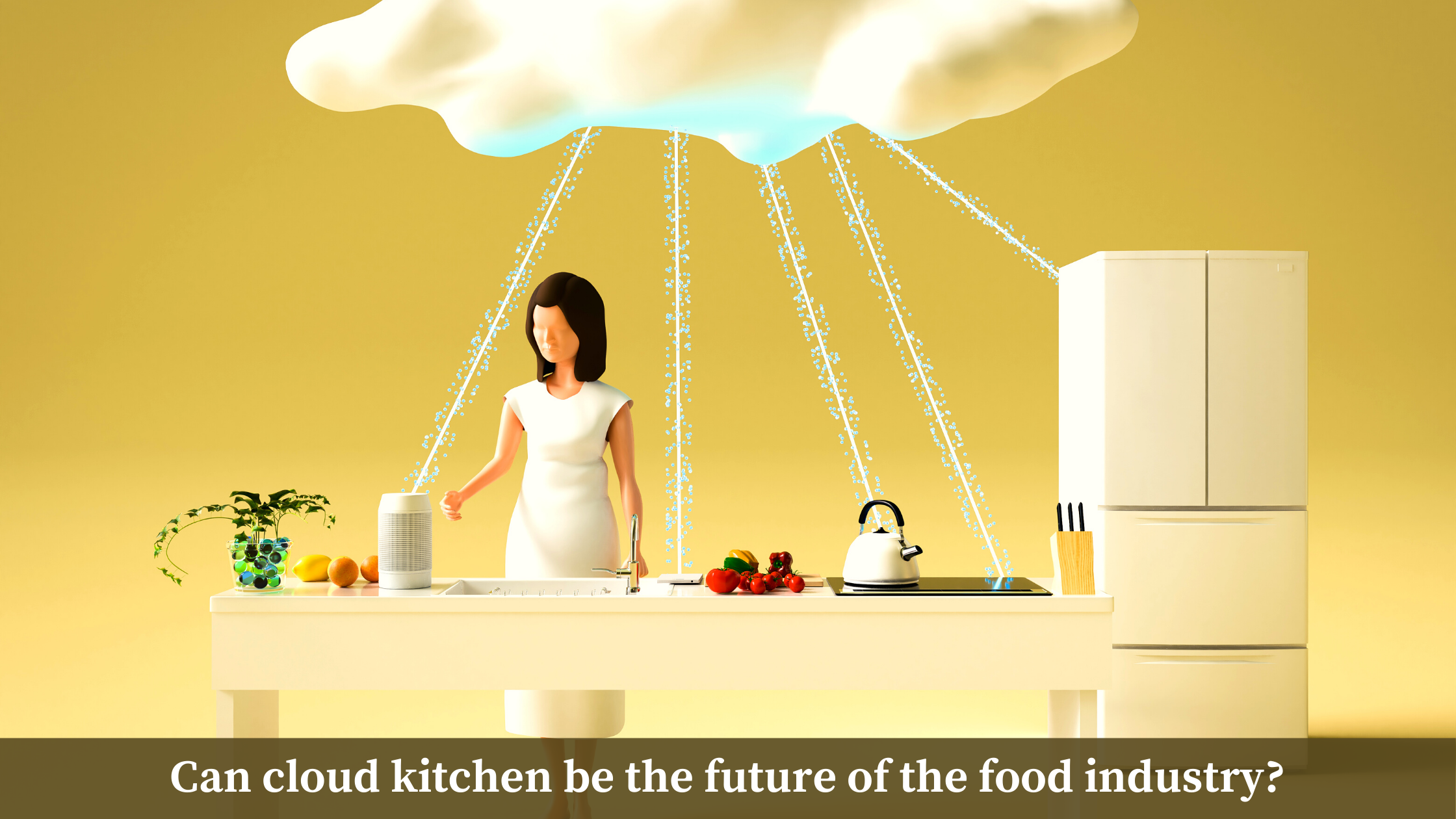The beginning of Cloud Kitchen
Cloud kitchens or ghost kitchens are commercial facilities that deliver food at the doorsteps. These commissary kitchens are also considered shared kitchens or virtual kitchens where the order is placed on phone calls or online.
The concept of cloud kitchen has been in trend for many years. Chinese restaurants have been offering home delivery to boost their revenue generation. Apart from that, the pizza industry has built most of the business on cloud kitchen services. The concept is nothing new. It began with the food truck delivery services that initiated the entire concept of cloud kitchen. The food truck industry began to gain traction as a result of evolving technologies, and customers began ordering food through internet channels. Following that, many prominent businesses began establishing cloud kitchens soon after. Moreover, the progress of technology has been a key factor in generating the new era of ordering cooked food via the internet. In addition, social media channels such as Facebook and Twitter have contributed significantly to this trend. The official trend of the cloud kitchen sparkled in India. Rebel Foods, backed by Sequoia, launched its first company, Faasos, in 2003. They began registering orders via Twitter. As the adoption of smartphones grew, one-tap food delivery emerged as a never-ending concept.
Can cloud kitchen be the future of the food industry?
With the growing modernization and virtual world, cloud kitchen is forecast to gain traction in the coming years. Although the concept is nothing new, the trend is gained huge popularity in recent years. Moreover, the concept is not restricted to a single type of methodology anymore. Businesses can follow the franchised or stand-alone nature. There are several models made to keep up with the consumer’s demand. For instance, businesses can match the mathematical criteria by establishing an effective management system through the newsvendor model. The model is effective when a business suffers from variable demand and perishable inventory. Companies can expand their operations by using distributed kitchens.
Apart from that, another method to profit from the food delivery trend is to run a cloud kitchen as a separate business. As a coworking space, entrepreneurs rent the kitchen space to various third-party companies. As a result, it is forecast to rise as a future of the food industry.
The advantages of cloud kitchens would be the prominent factor driving the growth of this new era. Cloud Kitchens are rapidly attracting customers because of the delivered convenience, faster delivery, and more variety. Moreover, cost efficiency has been a prominent benefit for both businesses and consumers. The potential for robotics and AI to trim the cost of delivered meals has fueled some optimism in the business. From the viewpoint of businesses, the concept of cloud kitchen has been a convenient method to gather consumer data and share their offerings in the future. Apart from that, virtual restaurant firms can obtain instant visibility via applications and social media platforms. It reduces the cost of marketing and gathers more audience.
The sparking varieties in the food industries
Cloud kitchen can be the future of the food industry, owing to the growing trend of a variety of food offerings. The demand for international signature cuisine has been increasing with the public interest. Thus, it is offering restaurants a promising opportunity to expand their business with the convenience of a cloud kitchen. The growing demand for Thai, Indian, Italian and Chinese cuisine is forecast to change the entire outlook of the food industry in the coming years.
Technological Advancements
Earlier, the innovations in the food industry were only limited to food. The growing era of mobile phones has altered the entire landscape. Moreover, the advent of 5g can bring a plethora of opportunities for Cloud kitchen operators.
Regarding favorable growth opportunities, various prominent companies are investing in other businesses to expand their network and profit. For instance, Foodpanda, Asia’s leading food delivery platform, inked a partnership with Rebel Foods to help other connected restaurant and cloud kitchen operators build additional revenue streams.
Apart from that, various businesses have been introducing initiatives to gather feedback and make amendments accordingly. For instance, Door DoorDash, the leading delivery platform, announced the inauguration of the Restaurant Advisory Council (RAC), a program to collect feedback from restaurant operators regarding functionality, policy, and upcoming launches.
Earlier, the term “cloud” was limited to the processing that takes place in a data center or the files saved in the data center. However, the definition has expanded with the food industry. Restaurants with only kitchens that offer food delivery services are regarded as cloud kitchens. The growing era of cloud kitchens is expected to be a new normal in the coming years. Moreover, as the COVID-19 pandemic has changed the entire working of the business industry, the expansion of cloud kitchens is legit promising in the future. According to Astute Analytica, the global cloud kitchen market is forecast to grow at a Compound Annual Growth Rate (CAGR) of 13.4% during the forecast period from 2021-2027.
Author’s bio.
Emma is a freelance writer and content strategist who offers to ghostwrite, blogging, and copywriting services. She has a keen interest in content marketing with a hold on social media management and market research. With more than five years of experience in writing for different domains, currently, she is exploring a new area of interest in “Information Technology”. Pitch her out to discuss interesting and niche IT domains that are blooming in integration with modern technologies.



